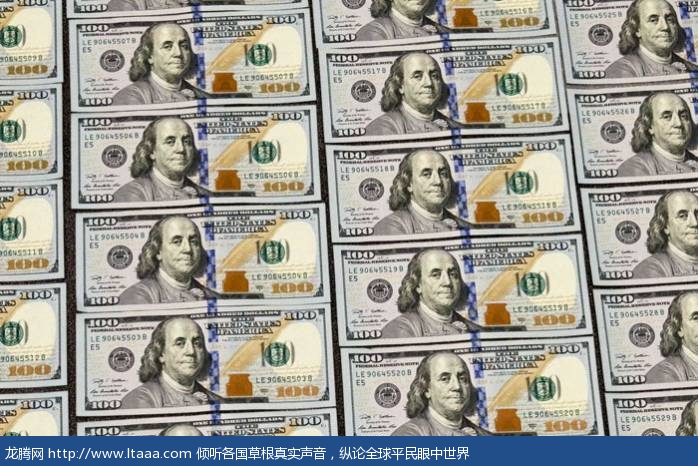令人惊讶的,美国的穷人反对重新分配财富 [美国媒体]
美国伴随着经济增长不平衡所堆积的愤怒,有人认为人们会对财富再分配政策的支持率一路看涨——比如对富人增税,增加给穷人的援助。但是国家经济分析部门最新的一份报告上总体表明,过去30年里,财富分布更加均匀这一点上,美国没有表现出多大的热情。事实上,一些比较弱势的经济团体成员,对推动他们经济地位提升并不怎么支持。
Surprisingly, America's Poor Oppose a Redistribution of Wealth
令人惊讶的,美国的穷人反对重新分配财富
As inequality spreads, support for sharing economic gains should increase. So why is it fading?
【日期】2015年9月11日
With all the outrage about growing economic inequality one might think that there’d also be growing support for wealth redistribution—policies that include hiking taxes for the wealthy or increasing aid to the poor. But a new working paper from NBER suggests that by and large, America’s desire to see wealth spread around more evenly hasn’t really increased that much at all in the past 30 years. And in fact members of some of the most vulnerable economic groups are actually less supportive of efforts that would boost the economic standing of the less well-off than they once were.
伴随着经济增长不平衡所堆积的愤怒,有人认为人们会对财富再分配政策的支持率一路看涨——比如对富人增税,增加给穷人的援助。但是国家经济分析部门最新的一份报告上总体表明,过去30年里,财富分布更加均匀这一点上,美国没有表现出多大的热情。事实上,一些比较弱势的经济团体成员,对推动他们经济地位提升并不怎么支持。
The topic of economic inequality has been inescapable in recent years. It’s become a talking point for everyone from famed economists to President Obama. And with good reason: The gap between the nation’s wealthiest and everyone else has been growing. And in the wake of an economic crisis that left scores of Americans unemployed and vastly devalued their largest assets, the rapid recovery of the wealthy as so many continue to struggle can feel painfully unfair.
近年来,经济不平等是热门话题。从着名经济学家到奥巴马总统都在谈论这个。最重要的一点是:这个国家贫富两极化越来越严重。在经济危机导致不少美国人失业后,人们的财产严重缩水,而富人们则快速回血这令很多仍挣扎奋斗的人们愤慨不已。
In the face of such division, Vivekinan Ashok and Ebonya Washington of Yale University and Ilyana Kuziemko of Princeton, the authors of the NBER study, attempted to figure out if a widening economic gap had caused Americans to become more supportive of efforts to create a more equal distribution of wealth in the country. They plotted out how Americans responded to questions about wealth redistribution based on age, gender, and race over the past few decades. Though inequality had grown, Americans hadn’t become any more supportive of using redistribution to fix the problem. For those over the age of 65, support for redistribution has actually waned as inequality has risen. And for black Americans, a group that is overall more supportive of redistribution than their white counterparts, desire for such efforts also decreased.
面对这样的分化,耶鲁大学的Vivekinan Ashok 和 Ebonya Washington以及普林斯顿的 Ilyana Kuziemko,这三位国家经济研究局的研究员,试图弄明白是否会因为贫富差距巨大,导致美国人会全力支持在国内营造一个更公平的财富分配环境。他们罗列了过去几十年内美国人财富分配的问题, 包括年龄、性别种族等。虽然不平等状况在增加,美国人对解决财富分配问题的态度上并有变得更积极。65岁以上的人群对解决财富分配问题的积极性是下降的。美国黑人群体比较白人群体,对解决财富分配问题的积极性是也是成下降趋势的。
In theory, this shouldn’t happen. Growing economic inequality results in more people falling below the mean-income level in the country. In turn, the demand for redistribution should rise, especially among these more economically vulnerable groups who tend to benefit the most from policies aimed at increasing equality.
从理论上讲有点说不通。越来越多的人收入水平低于全国平均值,这导致经济不平等现象。换个角度说,对于财富再分配的需求应该是上升的,特别是经济弱势群体是可以从这类经济平等政策中获得好处的。
So why did blacks and the elderly have an increasingly negative view of redistribution? It’s not because the two groups have improved their economic standing, or because they had become more conservative in their views about economic policy or political affiliation, researchers found. Instead, it was about how they saw their position in society, and how they thought that redistribution would affect it.
那么为何黑人和老人群体对于财富再分配呈现出消极态度呢?研究人员发现,这类政策并没有让这两个群体的经济地位提升,也不是因为他们在此类政策和政治问题中变得更加保守。而是因为,他们会担心他们在社会中的地位,财富再分配政策会影响到他们现有的状况。
For example, over the years, black Americans have become slightly less supportive of redistributive efforts while white Americans have become slightly more supportive. The number of black Americans who say that getting ahead is based on luck has decreased, while those saying that success is largely tied to hard work has increased. “Blacks view the economic system as becoming increasingly fair and are decreasingly supportive of government targeted aid based on race,” the authors write. And they say that this shift in views accounts for about 45 percent of the decreased support for wealth redistribution among the group.
比如,过去的几十年里,黑人群体开始对财富再分配政策态度消极的同时,白人群体却日渐积极。依靠先天获得成功的美国黑人减少了,而认为成功取决于努力的人却增加了。“黑人的经济系统越来越公平,而打着种族口号向政府要支援的在减少。”作者写道,这一观点的变化是引起该群体在财富再分配问题中调研数据下降百分45的主因。
The authors findings suggest that maybe more black Americans have begun buying into bootstrap theories, that working harder will ultimately yield economic equality. They are left somewhat baffled by the responses of black respondents. And rightly so. While it’s true that black Americans have made some educational and societal gains, the wealth gap between blacks and whites is at its highest level since 1989, according to Pew Research. And other important indicators of economic health including unemployment, wages, and homeownership also remain much more dismal for black residents than for their white counterparts.
作者研究结果表明,越来越堵的黑人开始接受这个理论,只要努力工作,最终会产生经济上的平等。黑人群体的被调研人也有些微的困惑。美国调研中心数据显示,美国黑人在教育和社会中取得了一定的收获,但在1989年黑人和白人贫富差距最大化。其他健康经济的重要指标,比如失业、工资和住房等,黑人群体也比白人也糟的多。
But the study’s findings are telling, showing that there can be significant differences in how people perceive their place in the world compared to what data shows about their place in the world. And that gap, too, can be difficult to overcome.
这一研究数据显示,世界各国人民对于自个地位的问题看待角度是有很大差别的。而这一差异也是很难克服的。
译者总结:啰叽巴索一堆,其实主要内容就一句话:美国人对财富再分配公平需求下降是因为黑人们开始变勤快知道努力工作了。
版权声明
我们致力于传递世界各地老百姓最真实、最直接、最详尽的对中国的看法
【版权与免责声明】如发现内容存在版权问题,烦请提供相关信息发邮件,
我们将及时沟通与处理。本站内容除非来源注明五毛网,否则均为网友转载,涉及言论、版权与本站无关。
本文仅代表作者观点,不代表本站立场。
本文来自网络,如有侵权及时联系本网站。
下一篇: 美媒:失望的中国一胎政策 [美国媒体]
图文文章RECOMMEND
热门文章HOT NEWS
-
1
Why do most people who have a positive view of China have been to ...
- 2
- 3
- 4
- 5
- 6
- 7
- 8
- 9
- 10
推荐文章HOT NEWS
-
1
Why do most people who have a positive view of China have been to ...
- 2
- 3
- 4
- 5
- 6
- 7
- 8
- 9
- 10











